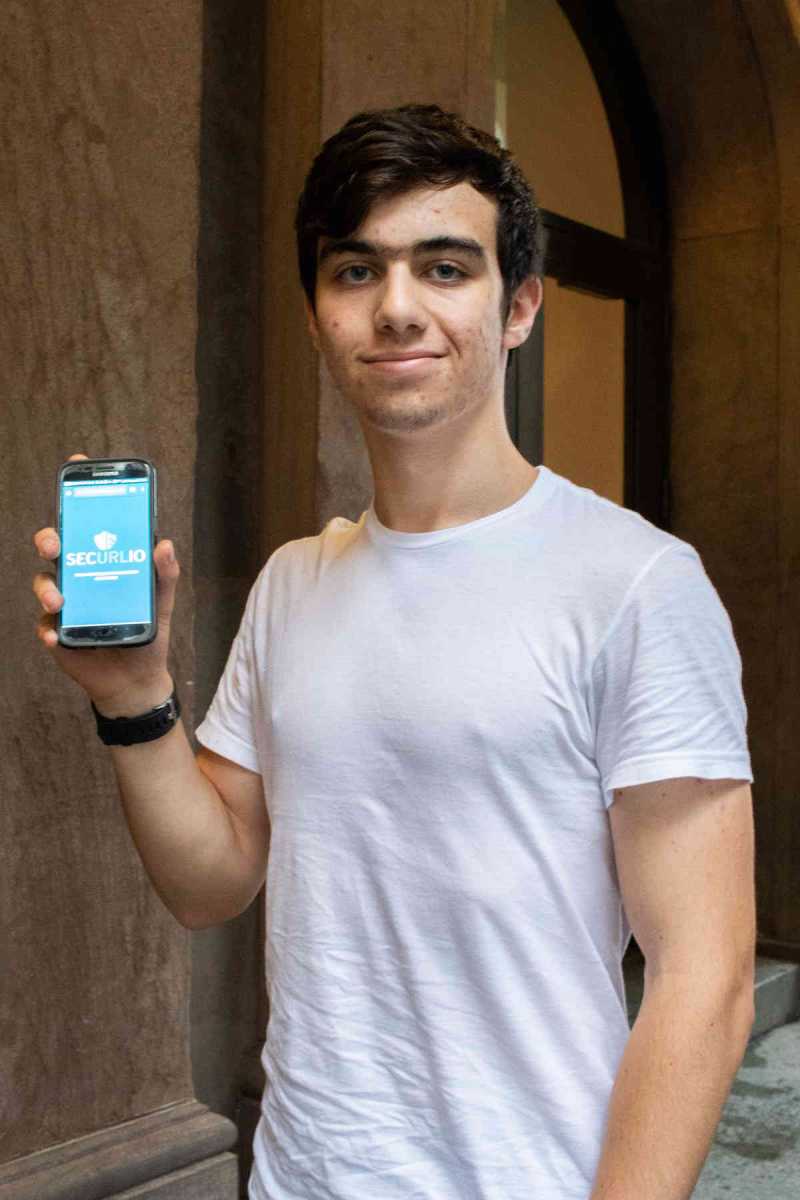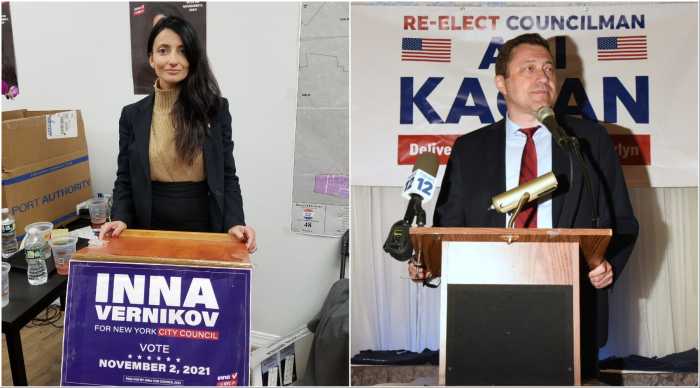This kid’s in a class of his own.
A Manhattan Beach high-school student won a prestigious global competition with his invention of a password generator and manager that helps prevent hackers from stealing peoples’ passwords. Sixteen-year-old Leonard Melnik took home the Leonardo da Vinci Prize for high school students in the Inventor’s Challenge for his program, which he said he was inspired to create after seeing friends and family repeatedly complain about forgetting their many passwords and being unable to protect their online accounts.
“On Facebook, I always saw friends and family making posts about how they lost their password or their account was hacked,” said Melnik, a rising junior at Stuyvesant High School on the distant isle of Manhattan. “We realized there should be an easier solution to this that doesn’t require the user to really do anything.”
Melnik’s creation, called Securlio Passgen — which users can download as a browser extension on Google Chrome — only requires users to remember one master password. The technology then creates a different, hacker-proof password — encrypted as a string of random numbers, letters, and symbols — for every website that requires a password, Melnik said.
“It allows you to use the same password for every single website, yet to each and every website it sends a different encrypted password,” he said. “It never stores your information anywhere, so there’s no risk of hacks.”
Melnik created the technology with a family friend, David Nagli, who lives in Florida. The pair plan to create an app version of the password generator for smartphones in the future, are also in the early stages of creating a startup company, Securlio, which they hope to use to build other web-security products, Melnik said.
But for now, the pair just want Securlio Passgen to make people’s online lives a little bit easier, according to Melnik.
“Overall, we just wanted to make everything simpler and more secure,” he said.
The third-annual competition, sponsored by AT&T and Imagination.org, had more than 240 entries from more than 180 cities worldwide, and selected only five winners, separated by age, plus one honorable mention. Entries were supposed to respond to challenges in students’ schools and communities, and judges made their decision based on originality, inspiration, and creativity.
Melnik said he was shocked to find out he won the competition for his age group when he got the results in April.
“I was on the bus home from school and saw this e-mail and didn’t even realize what it was at first, and as soon as I saw it I was so excited,” he said.
In addition to bragging rights, Melnik received a Samsung tablet, and a coding kit.






















